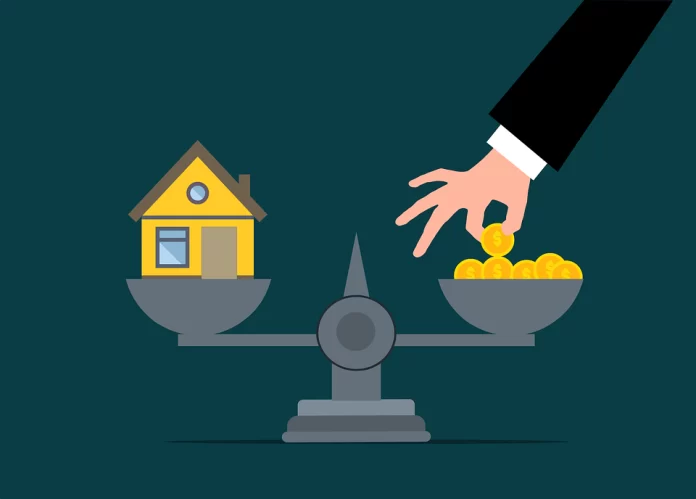You may be considering refinancing your home due to the cheap interest rates. As a result, you might pay less monthly for your mortgage and less interest overall. There are fees and hazards involved in refinancing and the interest rate, though.
Here is a detailed look at the Reasons Why refinance your mortgages May Be A Good Idea
What is mortgage refinancing?
When you refinance your mortgage, you exchange your old loan for a new one. Refinances come in two basic categories:
- Term-and-Rate Refinancing
Your current mortgage’s remaining balance is converted into a new loan with a better rate and duration for your circumstances.
- Refinance with cash out:
You borrow money from a new loan made up of your previous mortgage balance plus the cash you took out by selling some of the equity in your home.
You are not required to use your current mortgage lender to refinance; you can use any mortgage lender of your choice. However, like you (hopefully) did when you first got your mortgage, we advise you to shop around when refinancing.
Factors That Might Make Refinancing a Good Idea
So, why might you ever think about refinancing? What matters is what your goals are. People choose to refinance for a variety of causes. But some of the most typical ones are as follows:
-
You wish to make fewer payments each month.
You can refinance into a loan with a lower rate if rates have fallen since you took out your initial mortgage. Doing this can lower your monthly payments and pay less for your loan overall. Quickly check current rates to see if you can lower your monthly payments.
Instead, you can lengthen the loan’s term to pay off your debt more gradually if rates haven’t reduced, but your income has or is anticipated to do so. For instance, switching from a 15-year fixed-rate mortgage to a 30-year fixed-rate mortgage can result in lower monthly payments. However, you must remember that you’ll have to pay interest for a considerable period.
Your loan-to-value ratio (LTV) will be lower if you have paid off a major portion of your mortgage or if the value of your home has improved. A lesser loan balance about the value of your property indicates a lower risk to the lender, which may result in a better rate for you. You can refinance to get your private mortgage insurance cancelled if your home equity has recently surpassed 20% and you have been paying it.
-
Your credit rating has risen.
You can also refinance to get a better rate if your credit score significantly improves. For instance, a 20-point improvement in your credit score may be enough to lower your rate and to help you save thousands of dollars in interest throughout the loan.
You can increase your credit score by paying your payments on time, reducing your debt, and using less credit overall. Monitoring your credit score regularly can give you a solid picture of where it stands and when you may have the leverage to refinance for a reduced rate.
-
Your adjustable-rate mortgage’s fixed period is coming to an end.
While adjustable-rate mortgages (ARMs) can reduce your monthly mortgage payment during the first few years of house ownership, your interest rate may rise significantly after that. You can prevent this by converting from an ARM to a fixed-rate mortgage.
You will still be shielded from further rate rises even though your new fixed rate is probably greater than your first flexible rate. (On the other side, moving to an adjustable-rate mortgage could cut your rate and monthly payments until the fixed period ends and you sell your property if you know you’ll do so shortly.)
-
You can make larger monthly payments.
In certain circumstances, extending the loan’s duration while refinancing could be advantageous. For example, you could refinance into a shorter loan (such as from a 30-year fixed-rate mortgage to a 15-year fixed-rate mortgage) to pay it off faster and save thousands of dollars in interest payments over the life of the loan if you can afford higher monthly payments as a result of an increase in income.
Is it a wise decision for you to refinance?
Refinance your mortgages can have a lot of advantages, but you should keep in mind that you’ll still need to fill out a loan application and pay closing expenses, just as you did when you got your first mortgage. In addition, you’ll have to pay costs for the lender, the appraisal, and the title insurance. (If you refinance with a Better Mortgage, you won’t have to worry about paying lender fees; we don’t.)
If you wish to refinance to get a better rate or term, consider the break-even point or how long it will take to recover the refinancing costs. If you intend to remain in your current home after you achieve break even, refinancing your mortgage can be a good choice. If this is the case, the upfront costs of refinancing won’t be more than the potential future savings.
If you wish to refinance to get a better rate or term, consider the break-even point or how long it will take to recover the refinancing costs. If you intend to remain in your current home after you achieve break even, refinancing your mortgage can be a good choice. If this is the case, the upfront costs of refinancing will be, at most, the potential future savings.
Read Also : How the Real Estate Industry Can Use Big Data






























































